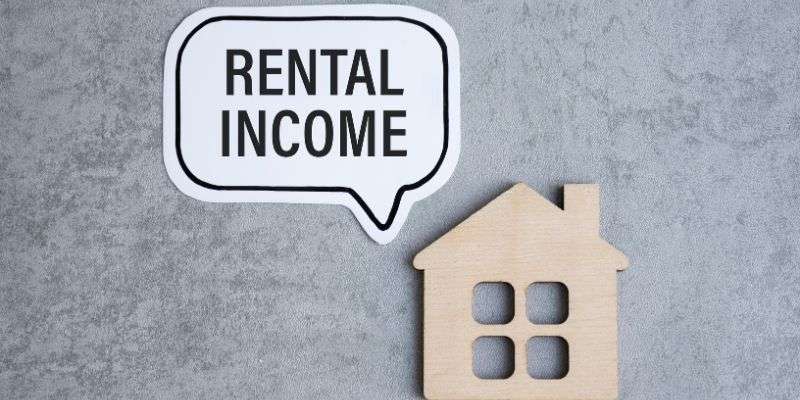Let’s be honest: nobody enjoys paying taxes, especially when it comes to your hard-earned rental income. The good news? There are legal strategies to minimize, and sometimes even eliminate, the taxes you owe on rental income. In this guide, we’ll walk you through a variety of tactics that can help keep your rental income in your pocket and out of the hands of the IRS.
Understanding Rental Income Taxation
Before diving into the strategies, it’s crucial to understand what rental income is and how it’s taxed. Rental income includes the rent payments you receive from tenants and any advance rent, lease cancellation payments, and expenses paid by the tenant that should have been paid by you.
Legal Ways to Minimize Rental Income Tax
While paying taxes is unavoidable, there’s a difference between tax evasion (illegal) and tax avoidance (legal). Knowing how to legally reduce your taxable income is key to maximizing your rental income profits.
Depreciation
What is Depreciation?
Depreciation is a non-cash deduction that allows you to recover the cost of your rental property over time. The IRS permits you to depreciate the value of your property, minus the land value, over 27.5 years for residential properties.
How Depreciation Reduces Taxable Income
Depreciation reduces your taxable income because it counts as an expense. Even though it doesn’t involve any actual cash outlay, it lowers your tax bill by reducing the amount of income you need to report.
Calculating Depreciation
To calculate depreciation, you need the property’s purchase price, the value of the land (since land cannot be depreciated), and the recovery period. The simplest method is the straight-line method, where the property value (minus land) is divided by 27.5 years.
Deductible Expenses
Maintenance and Repairs
Routine maintenance and repairs necessary to keep your property in good working order are fully deductible. This includes fixing leaks, painting, and replacing broken windows.
Property Management Fees
If you hire a property management company, their fees are deductible as well. This includes tenant-finding fees, maintenance supervision, and general management services.
Mortgage Interest
The interest you pay on your mortgage is one of the biggest deductions available to rental property owners. It can significantly reduce your taxable income.
Property Taxes
Any property taxes you pay on your rental property are deductible. Keep track of all payments to ensure you claim the full amount.
Insurance Premiums
Premiums for rental property insurance, including fire, theft, and flood insurance, are fully deductible.
Utilities
If you pay for utilities like water, gas, or electricity, these expenses are deductible. If tenants reimburse you, that counts as income but you can still deduct the expense.
Cost Segregation
Definition of Cost Segregation
Cost segregation is a tax planning strategy that involves identifying and reclassifying personal property assets to shorten the depreciation time for tax purposes.
Benefits of Cost Segregation Studies
Cost segregation studies can significantly accelerate depreciation deductions, allowing you to reduce taxable income more rapidly than with traditional methods.
Applying Cost Segregation to Your Property
By conducting a cost segregation study, you can separate the cost of personal property from the cost of the building itself. This enables you to depreciate certain items over 5, 7, or 15 years instead of 27.5 years.
1031 Exchange
Explanation of the 1031 Exchange
A 1031 exchange allows you to defer capital gains taxes when you sell a rental property by reinvesting the proceeds into another like-kind property.
Benefits of a 1031 Exchange
The primary benefit is the deferral of capital gains taxes, allowing you to reinvest more capital into new properties, which can potentially generate more income.
Steps to Execute a 1031 Exchange
To complete a 1031 exchange, you must identify a new property within 45 days and close on it within 180 days of selling your original property. Working with a qualified intermediary is essential to ensure compliance with IRS rules.
Passive Activity Loss Rules
Definition of Passive Activity Losses
Passive activity losses (PALs) refer to the financial losses you incur from rental activities, which can only be used to offset passive income.
How to Offset Rental Income with Passive Activity Losses
If your rental property operates at a loss, you can use those losses to offset other passive income, reducing your overall taxable income. If you have excess losses, they can be carried forward to future years.
Real Estate Professional Status
Criteria for Qualifying as a Real Estate Professional
To qualify, you must spend more than 750 hours per year actively involved in real estate activities, and it must constitute more than half of your total working time.
Tax Benefits of Real Estate Professional Status
As a real estate professional, you can deduct rental losses against other types of income without the usual PAL limitations, significantly reducing your taxable income.
Opportunity Zones
What are Opportunity Zones?
Opportunity zones are economically distressed areas where investments receive preferential tax treatment.
Tax Incentives for Investing in Opportunity Zones
Investments in opportunity zones can qualify for temporary deferral of capital gains, step-up in basis, and potential exclusion of capital gains on investments held for at least 10 years.
How to Take Advantage of Opportunity Zones
Investing in these zones through qualified opportunity funds (QOFs) allows you to benefit from significant tax incentives designed to encourage economic development.
Vacation Rental Tax Benefits
Tax Treatment of Vacation Rentals
Vacation rentals are treated differently from long-term rentals. If you rent out your property for less than 15 days a year, the income is tax-free.
Deduction Opportunities Specific to Vacation Rentals
For properties rented for more than 15 days, you can deduct expenses proportionate to the rental period. However, personal use of the property limits the deductions you can claim.
Tax-Free Rental Income for Personal Residences

The 14-Day Rule
The IRS allows you to rent out your personal residence for up to 14 days per year without having to report the income. This is particularly useful during events where rental demand spikes.
Utilizing the Personal Residence Exemption
Using this exemption strategically, such as renting during major local events, can provide substantial tax-free income.
Keeping Accurate Records
Importance of Record-Keeping
Maintaining accurate records is essential to substantiate your deductions and defend against any IRS audits.
Tools and Techniques for Maintaining Records
Utilize accounting software, digital receipt tracking, and regular financial reviews to keep your records organized and up-to-date.
Consulting with Tax Professionals
The Role of a Tax Professional
A tax professional can provide tailored advice, help you navigate complex tax laws, and ensure you maximize your deductions.
Finding the Right Tax Advisor
Look for advisors with experience in real estate taxation. Recommendations from other property owners can be valuable.
When to Seek Professional Advice
Whenever you’re unsure about tax laws or planning a major financial move, consulting a tax professional can prevent costly mistakes.
Conclusion
Navigating the complex world of rental income taxation can be daunting, but with the right strategies, you can significantly reduce your tax burden. From depreciation to 1031 exchanges, understanding and utilizing these methods will help you keep more of your rental income. Always remember, that staying informed and consulting with tax professionals is key to maximizing your tax benefits.
FAQs
How can I reduce my taxable rental income?
Utilize deductions for expenses like maintenance, property management fees, mortgage interest, and depreciation. Consider strategies like cost segregation and 1031 exchanges.
What is a 1031 exchange and how does it help with taxes?
A 1031 exchange allows you to defer capital gains taxes by reinvesting the proceeds from a property sale into another like-kind property, thus preserving more capital for investment.
Are there any tax benefits to owning rental properties in opportunity zones?
Yes, investing in opportunity zones can offer deferred capital gains, step-up in basis, and potential exclusion of capital gains on long-term investments.
How does the 14-day rule work for rental properties?
If you rent out your personal residence for up to 14 days per year, the income earned is tax-free, regardless of the amount.
When should I consult a tax professional regarding my rental income?
Consult a tax professional when planning significant financial moves, when you’re unsure about tax laws, or when seeking to optimize your tax strategy.
For more insights on managing your finances effectively, check out our article on Why Personal Finance is Important in 2024.

